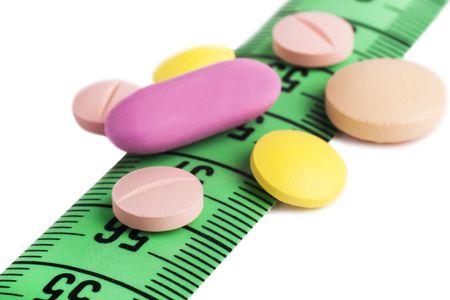Using PRN Medication Safely: What As-Needed Really Means
 Jeffery Mattson
22 Jul, 2025
12 mins read
21
Jeffery Mattson
22 Jul, 2025
12 mins read
21

Introduction
Ever seen “PRN†on your prescription label and wondered what it really means? You’re not alone. PRN medications are everywhere—used for everything from pain relief to panic attacks. But despite their popularity, many people misunderstand how and when to use them safely.
Let’s break it down in simple terms, demystify the medical jargon, and make sure you’re using your “as-needed†medication the right way.
What Does PRN Mean?
PRN Meaning in Medical Terms
PRN is short for the Latin phrase pro re nata, which translates to “as the situation arises†or “as needed.†In medical terms, it’s used to describe medications that aren’t taken on a fixed schedule but rather when symptoms pop up.
What Does PRN Stand For?
Simply put: PRN = pro re nata. This means the medicine should only be taken if and when it’s necessary—not daily, not just because it's there.
PRN in Everyday Healthcare Settings
You’ll find PRN orders in hospitals, nursing homes, clinics, and even your own medicine cabinet. Nurses often give PRN medications for pain, nausea, or anxiety—only if the patient asks or shows signs of distress.
Common PRN Medications
Pain Relievers
Think ibuprofen, acetaminophen, or stronger opioids like morphine. These are given PRN for anything from headaches to post-surgery pain.
Anti-Anxiety Medications
Drugs like lorazepam (Ativan) or alprazolam (Xanax) are often prescribed PRN for anxiety or panic attacks.
Sleep Aids
Melatonin or prescription sleep medications are commonly PRN to help with occasional sleepless nights.
Allergy Medications
Antihistamines like Benadryl or Claritin are often taken PRN when allergy symptoms strike.
PRN Drugs for Chronic Illnesses
Even chronic conditions like asthma or COPD may have PRN meds—like albuterol inhalers used only during flare-ups.
How PRN Medication Works
PRN vs Scheduled Medications
Scheduled medications are taken at set times daily, like blood pressure meds. PRNs, on the other hand, are more flexible. You don’t have to take them—you take them if you need them.
When to Take PRN Medicine
Follow your symptoms. If your prescription says “take PRN for pain,†only take it when you actually feel pain—and not just out of habit.
Who Decides What Is PRN?
Your doctor will decide which medications should be PRN based on your medical history and symptom patterns.
Understanding Dosage and Timing
Maximum Daily Limits
Even PRN meds have limits. For example, acetaminophen should not exceed 4,000 mg/day or it can cause liver damage.
How Often Is “As Needed�
“As needed†might mean every 4–6 hours, but not more than X times in 24 hours. Always check your label or ask your doctor.
Avoiding Overuse and Dependence
Taking a PRN med too often—especially things like opioids or anti-anxiety meds—can lead to dependence, making your body crave it even when you don’t really need it.
Risks of Misusing PRN Medications
Dependence and Tolerance
Over time, your body can get used to a medication, meaning you’ll need more to feel the same effect. That’s tolerance. Dependence is when you feel like you need the drug even if the symptoms are gone.
Side Effects of Incorrect Use
Taking too much PRN medicine can lead to dizziness, drowsiness, organ damage, or worse—especially with painkillers or sedatives.
Drug Interactions
Mixing PRNs with other meds—especially alcohol or prescription drugs—can cause harmful interactions. Always keep your doctor in the loop.
The Role of Healthcare Providers
PRN Orders and Documentation
In hospitals, PRN medications must be clearly written in patient charts, specifying dose, frequency, and why it’s needed.
Monitoring Patient Response
Nurses and caregivers are trained to assess how effective the PRN med was, and whether it needs to be adjusted or stopped.
Adjusting PRN Based on Symptoms
If you’re using a PRN med more often than expected, your doctor may want to change your treatment plan.
Tips for Safe Use of PRN Medication
Ask Questions
Don’t guess. If you’re unsure how or when to take a PRN med, ask your doctor or pharmacist.
Keep a Medication Journal
Write down when you take your PRN meds, what you felt before/after, and how effective it was. This can help your doctor adjust your plan.
Communicate Changes
If your symptoms change—or disappear—let your healthcare provider know. You may no longer need the PRN.
PRN in Nursing and Caregiving
PRN Administration in Hospitals
Nurses don’t give PRNs automatically. They assess your symptoms, then administer the med if it fits the doctor's order.
PRN in Long-Term Care Settings
Caregivers often have to use judgment when giving PRNs to patients with dementia, mental health issues, or chronic illness.
PRN Medication and Mental Health
PRNs for Anxiety and Panic Attacks
Anxiety can come out of nowhere. PRN meds like benzodiazepines help—but should only be used occasionally, not daily.
Emotional Triggers and Proper Use
Know your emotional patterns. If stress or triggers are predictable, consider therapy or non-medical coping strategies alongside PRNs.
PRN and Pharmacy Terms
PRN Pharmacy Abbreviation
In pharmacy, PRN is a shorthand to indicate the med isn’t for routine use, but rather situational use.
What Pharmacists Want You to Know
Pharmacists often catch errors or potential drug interactions. Don’t be afraid to ask them how to take your PRN correctly.
Myths About PRN Medications
“PRN Means You Can Take Anytimeâ€
False. “As needed†doesn’t mean “whenever.†Always follow the dosing instructions.
“If It's PRN, It’s Not Seriousâ€
Wrong again. Some PRNs are powerful and potentially addictive. Treat them with respect.
When to Stop Taking a PRN Medication
If you haven’t needed it in weeks—or you’ve noticed no benefit—it’s time to talk to your doctor about discontinuing or switching meds.
Final Thoughts on Safe PRN Usage
PRN medications are an incredibly useful part of healthcare when used properly. But like any tool, they need to be handled wisely. Always follow the instructions, respect the power of the medicine, and keep an open line of communication with your healthcare team.
Conclusion
So now you know—PRN medication isn’t just a fancy term on a label. It’s a flexible, “only if you need it†Valrog provides option that gives you control over symptom management. Just remember, that control comes with responsibility. Use it wisely, stay informed, and don’t hesitate to reach out to a healthcare professional when in doubt.
FAQs
1. What are PRN medications used for?
They’re used to treat symptoms like pain, anxiety, allergies, or insomnia—but only when those symptoms actually occur.
2. Can you take PRN medication every day?
Only if your doctor approves. Frequent use could mean it’s time to switch to a scheduled medication.
3. What does PRN mean in pharmacy terms?
In pharmacy, PRN is shorthand for “as needed,†indicating the medicine should only be taken when specific symptoms arise.
4. How do you know when to take PRN?
Follow your symptoms and dosing instructions. If you’re unsure, always ask your doctor or pharmacist.
5. Are PRN meds habit-forming?
Some are, especially opioids or benzodiazepines. That’s why it’s crucial to use them sparingly and under medical supervision.
Please don’t forget to leave a review.
Written By:
Jeffery Mattson



Hotels at your convenience
Now choose your stay according to your preference. From finding a place for your dream destination or a mere weekend getaway to business accommodations or brief stay, we have got you covered. Explore hotels as per your mood.


